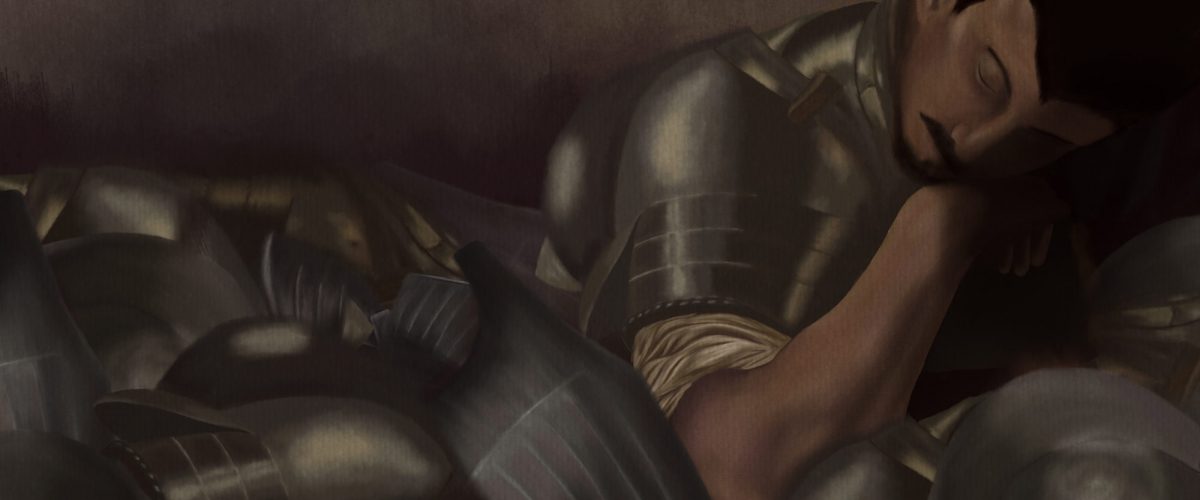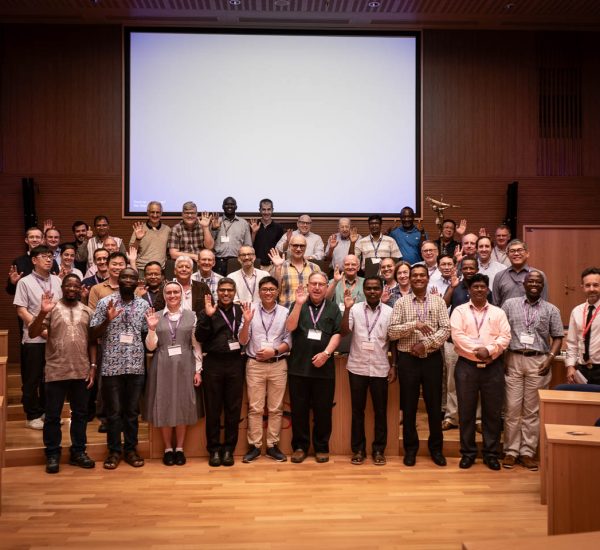“Seeing all things new in Christ” the motto for the Ignatian Year, but how do we see our failures and the loss of our plans and dreams? Perhaps the experience of St Ignatius can help us. Pascal Calu, a young Jesuit helping to co-ordinate the events of the Ignatian Year suggests that it can.
At its very core Christianity is a historical religion. God chose to physically insert himself in human history by becoming human as a vulnerable child in a particular time and place. This partly explains why history is so important to Christians. Looking back on the past, and the experience of our predecessors and ancestors, helps us to ascertain the unfolding of God’s plan for the world. Even so, we do not live in the past. Looking back only makes sense if it helps us to live closer to Christ today and tomorrow.
On 20 May 2021, the Society of Jesus and the entire Ignatian family are starting an Ignatian Year which will last until 31 July 2022. We will be commemorating events from the past to help us to follow Christ more closely today. It is significant that we are not commemorating a birth date or a date of death. This year, 20 May marks the 500th anniversary of the wound inflicted on St. Ignatius of Loyola who was defending Pamplona as captain in the Spanish army against the French troops. Ignatius, who thought of himself as an ambitious courtier with a bright and rich future, was severely injured and saw all his dreams crumble. In this sense we are actually commemorating a failure; the moment in Ignatius’ life when many would have thought him a loser.
It is difficult to imagine a more countercultural commemoration in our contemporary society which puts so much emphasis on fame, riches, success, and ambition. But was not Christ’s crucifixion a similar apparent failure? The Messiah – who in the eyes of his followers, was the one who was going to redeem Israel (Lk. 24: 21) – finds himself executed in the most abhorrent and despicable manner. The dreams and aspirations of his disciples hopelessly crushed, they lost all energy and dynamism; “they stood still, their faces downcast” (Lk. 24: 17b).
Nevertheless, we all know this was not the end of it. On the contrary, Jesus’s entire life and His Good News only makes sense in light of the Resurrection. In this sense, the commemoration of Ignatius’ being wounded helps us to understand his life and God’s workings in his life: the story of Ignatius does not end with the shattered leg. The incredible conversion that followed marked the rest of his life and the lives of so many others who were inspired by Ignatian spirituality and continue to be inspired today. The failure at Pamplona turns out to be a life-giving change. The wound is therefore really a felix vulnus (a happy wound).
Reflecting on Ignatius’ conversion can help us to treat ourselves with more tenderness. His conversion was a very human way of trying to follow Christ, falling down and getting back up again. His initial zeal after his first conversion was not yet completely Christ-centred and many disordered attachments remained. The voluntaristic way in which Ignatius tried to bring about his Christ-centred life ultimately led him to a crisis in Manresa and brought him to the edge of suicide. That experience makes Ignatius so endearingly human. It helps us to be able to relate more easily to him and to remind ourselves that every attempt at following Christ will be littered with obstacles, twists and turns, mistakes and failures. And more importantly, it shows that this is not in itself a bad thing; encourages us to be tender with ourselves, gently inviting ourselves every day again to a conversion of heart and to try and see all things new in Christ.
Commemorating this past event offers us an excellent opportunity to discover God’s way of working in our own lives and in the world around us today. It helps us to reflect on the meaning of conversion: to understand better what it means to leave behind a self-centred vision of ourselves and the world and to choose one that is Christ-centred, ‘to see all things new in Christ’. In the words of the prayer of St Richard of Chichester, which Ignatius would certainly have recognised, it invites us to know Christ more clearly, love Him more dearly, and follow Him more nearly.




